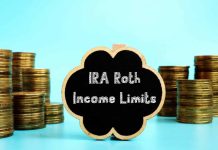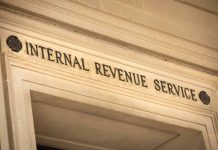
Planning for retirement can be hard to do. Retirement refers to when a person decides to leave the workforce forever. However, when a person leaves the workforce, that means they also leave their source of income. Losing a source of income will make it hard to pay for bills like your rent, groceries, etc. That is why you need to have retirement savings! Sadly, many people struggle with this part of planning for retirement. In fact, 36% of Americans believe that they will never have enough money to be able to retire.
That doesn’t need to be the case! Instead, individuals can take the steps they need to take in order to plan for retirement. This includes considering retirement accounts like a 401(k) account. Understanding your options can help you understand if this is the type of retirement account you want or if you may benefit from getting a different account like a Traditional IRA or a Roth IRA.
What is a 401(k) Account?
This is a type of retirement savings and investing plan. Employers are the ones that offer 401(k) plans. This is a benefit for people saving for retirement because it gives employees a tax break on the money they contribute (deposit). Contributions are taken out of the employee’s paychecks automatically. The funds are then invested in different offerings that the company provides a list of.
There are contribution limits to 401(k) retirement accounts. In 2021, the contribution limit for the year was $19,500 for those younger than 50 years old. However, in 2022, the contribution limit for the year was $20,500 for those younger than 50 years old. The contribution limits vary by age though! That means in 2021 the contribution limit was $26,000 for those that were 50 years old or older. In 2022, the contribution limit is $27,000 for those that are 50 years old or older. It’s important to note that the employer could match some or all of the contribution that the employee deposits!
Different Types of 401(k) Accounts
Many people don’t realize that there is more than one type of 401(k) account. Instead, there are two main options that each have their own set of tax advantages! There is:
- Traditional 401(k)
- Roth 401(k)
Traditional 401(k)
This is what many people think of when they think of a 401(k). Contributions from the employee are deducted from their gross income. That means the money comes from the employee’s payroll before the taxes have been taken out. What does that mean? Well, the employee’s income that’s taxable will be lower since the total amount of contributions from the year is considered a tax deduction. No taxes are due on the money that is deposited or on the earnings until the employee takes out the money (which should happen in retirement!).
Roth 401(k)
While one option is a Traditional 401(k), another option to consider is a Roth 401(k). Contributions for this type of account are deducted from the employee’s income after taxes. That means that there will not be a tax deduction at the time of the deposit. However, when the money is taken out, there are no extra taxes that an employee will need to pay on the contribution or the investment earnings.
Are 401(k) Withdrawals Taxed?
Most of the time, distributions (also known as withdrawals) are taxed as ordinary income. However, how they are taxed depends on the type of account and when you withdraw the funds. You will want to make sure you understand how each 401(k) account deals with taxes. This can help you make the right decision when it comes time to save for retirement! Let’s start off by learning about the taxes of a Traditional 401(k) account.
Taxes for a Traditional 401(k)
Distributions (or withdrawals) from a Traditional 401(k) are pretty easy to understand. Since your deposit is made with pre-tax income, that impacts your gross salary. By having a lower gross salary, you reduce your taxable gross income. Why is that important? Well when you reduce your taxable gross income, you lower the income taxes that you pay for that tax year. However, that means that you can expect to deal with taxes once you begin making withdrawals (also known as taking distributions)
Generally, the funds you take out from a Traditional 401(k) are taxed as standard income. That means that the rate you pay will be for your tax bracket in the year that you take out the funds. Your tax bracket depends on how much taxable income you have. There are exceptions to this rule though! An example of an exception would be if you were born before 1936 and you take your distribution out as a lump sum. There are some other rules to keep in mind with this type of account as well. For example, there are required minimum distributions (RMDs) that must begin when the account holder turns 72 years old.
Taxes for a Roth 401(k)
On one hand there is a Traditional 401(k). On the other hand, there is a Roth 401(k). A Roth 401(k) is different when it comes to how you handle taxes. That’s because unlike a Traditional 401(k) where you use pre-tax income, you will use after-tax income. That means that you will not be able to deduct the amount you deposit from your taxes when you make the contribution. Since the funds that you deposit have been already taxed, you typically won’t have to worry about there being taxes on your distributions (as long as they are qualified distributions).
In order for a distribution to be considered as qualified, the Roth 401(k) must meet establishment guidelines. That includes:
- Meeting the five-year aging rule for the account
- Being at least 59 years and 6 months old
It’s important to keep in mind that these guidelines only apply to money that your account earns. That means you can take funds out from your contributions (not earnings) whenever you want without having to deal with penalties. For this type of account, you will need to make sure that you follow the rules. For example, there are required minimum distributions (RMDs) that must begin when the account holder turns 72 years old.
Do You Have to Pay Taxes on Your 401(k) After You Turn 65 Years Old?
The important age that you need to keep in mind is 59 years and 6 months old. That is the official age of retirement (even though most people think it is 65 years old). However, anything past that age whether it be 65 years old, 75 years old, etc. doesn’t matter when it comes to your taxes.
Can You Avoid Paying Taxes on a 401(k) Withdrawal?
If you want to avoid paying taxes when you withdraw money from your 401(k) account, you will want to keep some important information in mind. For example, when you have a Traditional 401(k) you won’t have to pay taxes when you make deposits (or when those deposits are matched by your employer). Another benefit is the fact that you won’t have to worry about tax on your earnings as your money gets bigger. This means your contributions can compound quickly!
However, once it is time to withdraw funds from this account, you can expect the funds to be treated as ordinary income. Which means you will need to pay taxes on the money you take out. In short, there is no way to get out of paying the taxes that you owe. However, there are strategies that you can consider that can help you make the most out of your situation when it comes to dealing with taxes. Some things you can consider include:
- Diversifying Your Retirement Income
- Considering a Roth IRA Conversion
Diversifying Your Retirement Income
One of the best ways to handle your taxes when it comes to retirement is through making sure you have diversity. That means that you want to have other accounts besides a 401(k). This can help you make strategic withdrawals that could lower your tax burden overall. When you lower your tax burden, you can find that your retirement planning is easier to manage! We will talk about more options down below but some things to consider include a Traditional IRA and a Roth IRA which are types of Individual Retirement Accounts.
Considering a Roth IRA Conversion
You may also benefit from converting a part of your 401(k) into a Roth IRA. A Roth IRA is a type of individual retirement account. We will talk more on this type of account down below. But basically, you will owe tax on the amount that you convert over. However, you will likely not owe any more taxes during your entire lifetime! Doing this can help you be more tax-efficient when it comes time for you to retire.
Pros and Cons of a 401(k)
Just like anything you consider in life, you will want to compare the pros and cons. This can help you look at the bad and good that come along with a choice you make.
Pros of a 401(k)
Some of the pros of a 401(k) include:
- Federal Legal Protection
- Potential Fund Match
- Large Contribution Limit
- Potentially Free Investing Advice
Federal Legal Protection
Qualifying workplace retirement plans have the benefit of protection thanks to the Employee Retirement Income Security Act of 1974 (ERISA). This sets standards for employers that provide retirement plan opportunities to their employees (as well as the administrations who manage them). Besides minimum standards for employers, this law also offers protection from creditors, and the right to sue for benefits and breaches if the plan has been mismanaged (amongst other benefits).
Potential Fund Match
While not every employer offers to match funds that the employee deposits into their account, many do! They may match a part or all of the employee contributions. This can boost the overall value in your account!
Large Contribution Limit
Other accounts like a Traditional IRA or a Roth IRA have contribution limits of $6,000 for those younger than 50 years old for 2021 (and 2022). However, the contribution limit is $7,000 for those older than 50 years old for 2021 (and 2022). On the other hand, a 401(k) has larger contribution limits. For 2021, the allowable limit is $19,500 for those younger than 50 years old and $26,000 for those older than 50 years old.
Potentially Free Investing Advice
Oftentimes in workplace retirement plans, you will see that plan providers are major brokerages. Major brokerages include companies like Fidelity or Vanguard. These brokerages tend to have resources that can include online assessments or even free financial advisors. If they have these resources then you want to make sure you take full advantage of them!
Cons of a 401(k)
On the other hand, there are also cons to keep in mind as well. That’s because some of the cons of a 401(k) include:
- Limited Investment Opportunities
- Potentially Higher Account Fees
- Early Withdrawal Fees
Limited Investment Opportunities
You may see that you have less investment options when you have this type of account. Other types of retirement accounts may have more investment options. Typically you will see basic assets to choose from like bonds, cash funds, stocks, etc. This means that options like exotic accounts (which can be unlike taxable investment accounts) are more rare to see in these plans. Even though this is a con, there is still a brightside! A brightside is that having less investment opportunities means less complex options which can be hard to understand.
Potentially Higher Account Fees
Since employer-sponsored retirement plans require administration responsibilities, there may be high fees that come along with these accounts. You can try to keep fees low by choosing low-cost index funds or exchange-traded funds (ETFs) if you have the opportunity.
Early Withdrawal Fees
Oftentimes you will see that retirement accounts have penalties and taxes on funds that are withdrawn early. The official retirement age is 59 years and 6 months old. That means withdrawals done before that age that do not meet any exception can see penalties of 10%! Keep in mind that you will not want to save too much in case you need access to money during times of financial hardship.
Remember to Talk to a Professional About Your 401(k) and Retirement!
As much as we love to give you advice, we want to remind you to get advice from an actual professional. The best way to find the best path for your situation is to speak to a professional like a Certified IRA Services Provider (CISP), a financial advisor, etc.
Other Retirement Accounts to Consider Besides a 401(k)
There are a variety of different retirement accounts that you can consider instead of a 401(k). We mentioned individual retirement accounts earlier in this article so let’s look at these options in depth! There are:
Traditional IRAs
This type of IRA is an account that can give people the chance to put pre-tax funds towards investments. The best part? These investments grow tax-deferred. It’s important to note that the Internal Revenue Service (IRS) will not assess:
- Dividend Income Tax
- Capital Gains Tax
Both dividend income tax and capital gains tax will not be assessed on these accounts until the beneficiary decides to withdraw money. Something else to keep in mind about these accounts is that there are limits to how much a person can contribute.
Roth IRAs
Besides a Traditional IRA there is a Roth IRA. This type of retirement account can give people the chance to take out tax-free distributions (withdrawals). However, they will only be tax-free if qualifying conditions are met. That’s because this type of account is funded with after-tax income. That means that the funds a person puts into this type of account is not tax-deductible. Instead, the account holder can see tax benefits when it comes time to take out money since it is generally tax-free.
Commonly Asked Questions
Understanding 401(k) accounts, taxes, distributions, etc., can be confusing. When people learn about this retirement account, they can have questions. Some other people may have had questions that you have as well!
Do You Have to Pay Income Tax on Your 401(k) Distributions?
Whether or not you pay state/federal income tax on your 401(k) distributions depends on factors like the type of 401(k) account you have and when you take out the funds. For a Traditional 401(k) you can expect the funds you withdraw to be treated as standard income. That means you will have to deal with the standard income tax for your tax bracket. (Remember, your tax bracket depends on how much taxable income you have!). On the other hand, a Roth 401(k) account may be able to have distributions be tax-free as long as they qualify! That means no income tax. However, if a person takes out a non-qualified distribution then they can expect to deal with tax consequences like income taxes, and a penalty of 10%.
Are Distributions from Your 401(k) Taxed as Ordinary Income?
Potentially! If you have a Traditional 401(k) account then you can expect to see your distributions be taxed as ordinary income. However, your Roth 401(k) may be a different story depending on whether or not the distribution is qualified.
Can You Reduce Your Tax Bill Through Saving for Retirement with a 401(k)?
You may be able to reduce your tax bill through saving for retirement. For example, if you have a Traditional 401(k) account then the funds that you deposit will be considered tax deductible. That means it will reduce the income that you pay taxes on. Reducing that income can result in a lower tax bill!
Bottom Line About 401(k) Accounts
When planning for retirement, you want to make sure you understand all your account options. One popular option is a 401(k) account. This is a type of retirement savings and investing plan. Employers are the ones that offer this type of account. This is a benefit for people saving for retirement because it gives employees a tax break on the money they contribute (deposit).
Contributions are taken out of the employee’s paychecks automatically. The funds are then invested in different offerings that the company provides a list of. There are contribution limits to 401(k) retirement accounts. In 2021, the contribution limit for the year was $19,500 for those younger than 50 years old. However, in 2022, the contribution limit for the year was $20,500 for those younger than 50 years old. The contribution limits vary by age though! That means in 2021 the contribution limit was $26,000 for those that were 50 years old or older. In 2022, the contribution limit is $27,000 for those that are 50 years old or older. It’s important to note that the employer could match some or all of the contribution that the employee deposits!
Whether or not you pay income tax on your 401(k) withdrawals depends on factors like the type of 401(k) account you have and when you take out the funds. For a Traditional 401(k) you can expect the funds you withdraw to be treated as standard income. That means you will have to deal with the standard income tax for your tax bracket. (Remember, your tax bracket depends on how much taxable income you have!). On the other hand, a Roth 401(k) account may be able to have distributions be tax-free as long as they qualify! That means no income tax. However, if a person takes out a non-qualified distribution then they can expect to deal with tax consequences like a penalty of 10%.
Article References
https://www.nerdwallet.com/article/investing/what-is-a-401k
https://www.investopedia.com/terms/1/401kplan.asp
https://www.quickanddirtytips.com/money-finance/retirement/7-pros-and-cons-401k
https://smartasset.com/retirement/what-is-a-certified-ira-services-professional-cisp
https://www.investopedia.com/terms/t/traditionalira.asp
https://www.investopedia.com/terms/r/rothira.asp
















